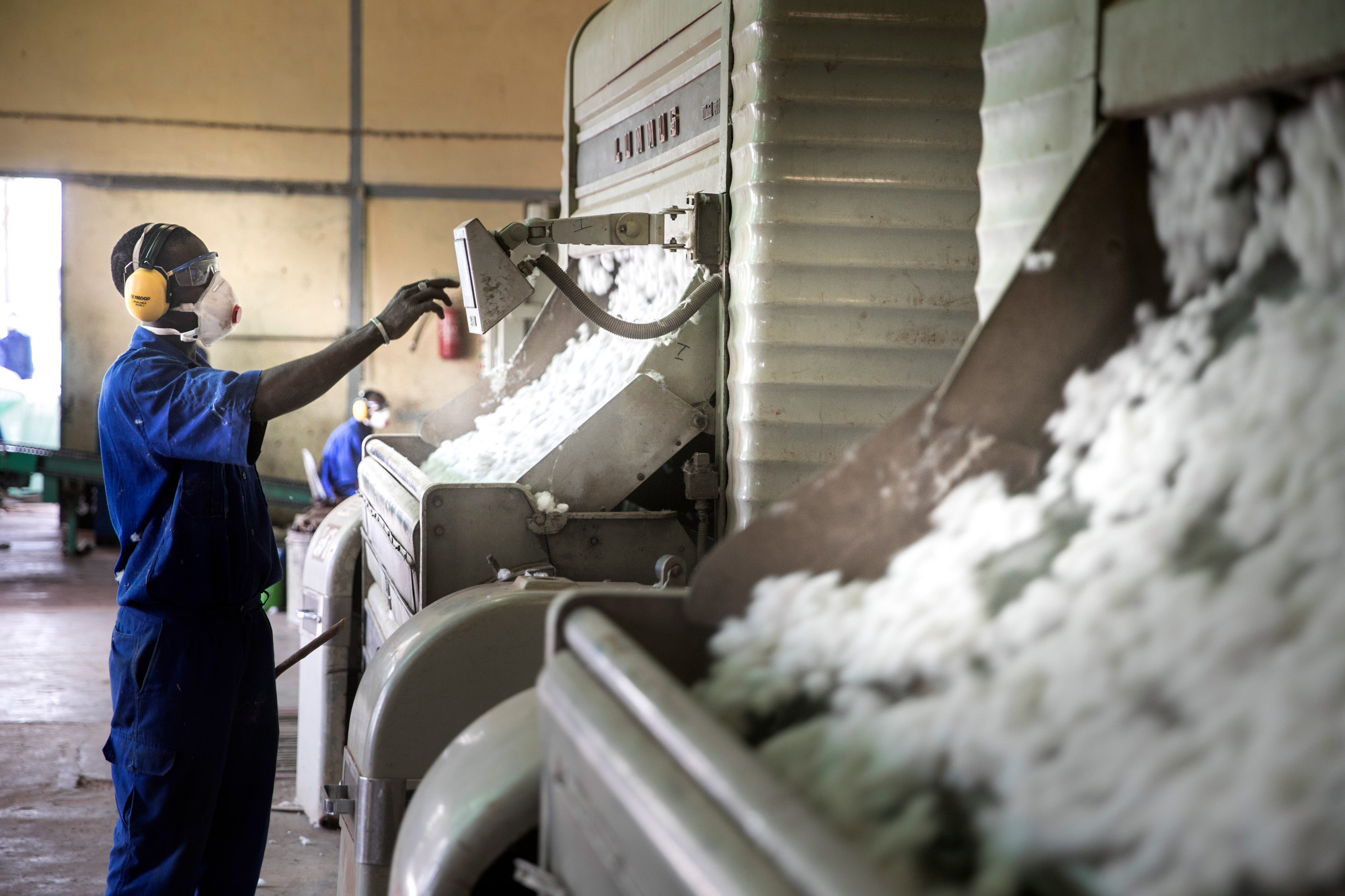Worker in a cotton ginning plant in Ouagadougou
Copyright© Ute Grabowsky/photothek.net
Economic situation Great dependency on gold and cotton
Economic growth between 2016 and 2019 ranged from 5.5 to 6.6 per cent. In 2020, due to the pandemic, it dropped to 1.9 per cent; 2021 saw a significant recovery with growth of 6.9 per cent. In 2022, a year of political crises, gross domestic product rose by only 1.8 per cent. The International Monetary Fund (IMF) is predicting a return to growth rates of at least six per cent for 2024 and 2025.
The COVID-19 pandemic has clearly shown that Burkina Faso’s economy is not able to cushion the impact of a crisis. The economy lacks diversification. The main export products are gold and cotton, meaning that the country is highly dependent for its growth on external factors such as world market prices, supply chains and climatic conditions.
A critical security situation, low educational levels and poorly developed infrastructure are holding back Burkina Faso’s economic development. Then there is the country’s unfavourable geographical position: Burkina Faso is landlocked, which means high transportation costs for export industries.
The situation is further exacerbated by high population growth. Although good farmland is scarce, the country needs to be able to feed more and more mouths. Often, new farmland is not used in a sustainable manner, so that over the long term the soil becomes unsuitable for agriculture. It is estimated that about one third of the country’s land surface is already degraded. At the same time, Burkina Faso is not fully exploiting existing potential for increased production. Smallholder farms have no access to modern methods of agricultural production or appropriate financial services. This is where German development cooperation comes into play (see also core area “Transformation of agricultural and food systems”).
As at: 15/02/2024
